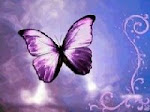‘Delhi is capable of its moments of liberation’: Akhil Katyal on being a queer poet and his undying love for the Capital
On the side lines of the Jaipur Literature Festival, Delhi-based poet Akhil Katyal talks about being a queer poet, his views on sexuality and the "ruthless" Capital city that is his muse.
Delhi-based poet Akhil Katyal at the Jaipur Literature Festival 2018.
Poetry has, undeniably, been a dominant theme at this year’s Jaipur’s Literature Festival. Apart from writers, nearly 30-odd poets made their way to Diggi Palace to speak, perform and discuss poetry. While the festival has done a fantastic job of scouring poets from across the world, it also enabled readers to meet those Indian poets who are slowly changing the landscape of poetry through their writing.
Among them is Delhi-based poet Akhil Katyal. Often described as a queer poet, Katyal’s poems engage with Delhi, a city he unabashedly describes as his lover, and queer politics. He has written two poetry books, How Many Countries Does the Indus Cross and Night Charge Extra.
In the side lines of the festival, he spoke to indianexpress.com expounding on what it means to be a queer poet the tags in India, the “tags” usually associated with it, his love for a “ruthless” city that is Delhi and why those who support the LGBTQ community must be viewed with scepticism.
Edited excerpts from an interview.
You are described as a queer poet. What does this tag bring to your writing?
Everyone is writing under some kind of a label. People who think they are not writing under some label usually happen to be white, heterosexual, upper caste men. They feel only they are writing and the rest are writing Dalit literature or gay literature. Actually, everybody is writing under some kind of a label, but these are fluid. On certain days, when you are reading poems on a Delhi queer rights stage in Jantar Mantar, you are a queer poet. On other days, if you going to another country then you become an Indian poet or a brown poet. And on days when you write poems redolent of the urban scenario, you are surrounded by you become a Delhi poet or a Lucknow poet. The tags are always there, but hopefully one would never stagnate and will keep on juggling between the different labels.
How comfortable are you with such tags?
I am absolutely comfortable with it because I don’t see it as a constraint. My parents, however, took some time coming to terms with the tag of a queer poet. They would ask me why are people calling you only a queer poet? But that discomfort was coming from a certain conservative outlook and homophobia. I told them there are days you are a queer poet and then on some days you are are a Delhi poet. If all these different kinds of poems keep on coming up and things do not get stagnant, and if even being a queer poet you do not write just one kind of queer poems, then it is all right. I don’t mind the labels. There are days when such labels help you navigate situations, or even a city to write certain kind of poems. That does not mean you are only that. One hopes one is not only a queer poet because you are always writing. You are always more than the sum of one or the other identities people might ascribe to you.
What are your views on sexuality?
Everyone should have the freedom to express and live with whatever sexuality they might have. It is as simple as that. The legal fight is one thing but the social struggle, where they are surrounded by family, colleagues, friends, hopefully will get easier with time, both for people who are gender queer and whose sexuality is not heterosexuality.
Do you feel you are judged in the literary circuit for being a queer poet?
No, not in the circles I move within. But it has happened. I have had work place experiences in which high authorities within the university have made openly homophobic remarks. They had not entertained the applications of other gay, lesbian teachers because they said, “we already have one of those”. And these have been said by folks you would think as “educated”.
The circle I move in is small and therefore my “no” does not represent the problems people largely experience. The judgement and the discrimination is happening for most people in the country. I know of so many of my friends, who work at government organisations in smaller towns who have to keep their sexuality hidden, largely women but also men. They know they will not be promoted, their leave applications will not be sanctioned.
Do you think the LGBTQ community is being appropriated by some to further their cause?
Yes. You will notice that certain section of media, who are known to spew hate consider the LGBTQ cause as their darling. Every once in a while they will do a story in a LGBTQ cause. They will also call some prototypical godman who will say something homophobic and then attack that person for sayings they he will. It seems to me that it almost as if they earn their “liberal credentials” by supporting the LGBTQ cause. The apparent support helps him to portray themselves as progressive but they continue to hate on anti-caste voices, on feminist voices and progressive-left voices. Such support, that again is differential, must be viewed with scepticism. More often than not an upper-caste gay man receives support.
Delhi features prominently in your poems. Is the city your muse?
Absolutely. Delhi has been the muse for so many people. The city is bursting with diverse language and culture. The different people you encounter in Delhi can only lead to poetry. At the same time it is a tough city to love. It is not kind to everybody. It is very different to men and women. The city’s acceptance of you depends on the class, caste and gender you belong to. It can be ruthless to some. And yet I love the city like one loves their lovers – by calling out their faults. The city is capable of its moments of liberation.
For all the latest Lifestyle News, download Indian Express App
© IE Online Media Services Pvt Ltd




















No hay comentarios:
Publicar un comentario